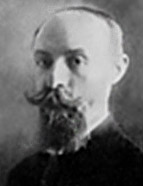

Georges Le Gentil forged close ties with Portuguese academic circles, both during the First Republic and later during the military dictatorship that followed the coup of 1926. His apparent political neutrality towards the emergence of Salazarism stemmed primarily from his constant support for the defence of Portuguese culture and language, which were a priority and a constant that always took precedence over political issues in his mind. Regarding the monumental History of Portugal published in seven volumes (1928-1937) to celebrate the eighth centenary of the foundation of “Portuguese nationality”, Georges Le Gentil makes this confession, which reveals very clearly the spirit of the French scholar: “Mais ce qui nous importe, au fond, c’est de savoir dans quelle mesure les Portugais continuent de collaborer à l’avancement de la civilisation européenne ou mondiale.” (“Le mouvement intellectuel au Portugal”, 1940, p. 282) This stance in defence of the Portuguese contribution to the construction of “European civilisation” explains the patriotic dimension of his discourse on Portugal, which did not prevent Le Gentil from voicing criticism when scholars and historians attempted to isolate Portugal from the European and Atlantic context to which it belongs: for example, with regard to the work of historian Alfredo Pimenta, História de Portugal (1934), whose integralist convictions he condemns (“Le mouvement intellectuel au Portugal”. Bulletin Hispanique , vol. 38, no. 2, 1936. pp. 208-225). In fact, Georges Le Gentil’s focus on a connected or cosmopolitan dimension of Portuguese culture faced, from the 1930s onwards, the growth of a certain nationalist stance in Portuguese academic circles, within which the tendency towards so-called “methodical nationalism” was growing. His rejection of the isolation of Portuguese history can be explained by his desire to highlight the decisive contribution of this “small country” to world history. On the French side, the Sorbonne professor preferred to take on the role of principal mediator and populariser of Portuguese culture, which meant emphasising the greatness of its history and its autonomy from Spain. As early as 1920, he denounced the “chimeras of Iberian union” and defended the principle of autonomy claimed by the Portuguese historiographical tradition, devoting an article to the work of historian Fidelino de Figueiredo. (“Le mouvement intellectuel en Portugal. Une orientation nouvelle des études historiques au Portugal: M. Fidelino de Figueiredo”. Bulletin Hispanique , vol. 22, no. 2, 1920. pp. 101-113).
This work is financed by national funds through FCT - Foundation for Science and Technology, I.P, in the scope of the projects UIDB/04311/2020 and UIDP/04311/2020.
